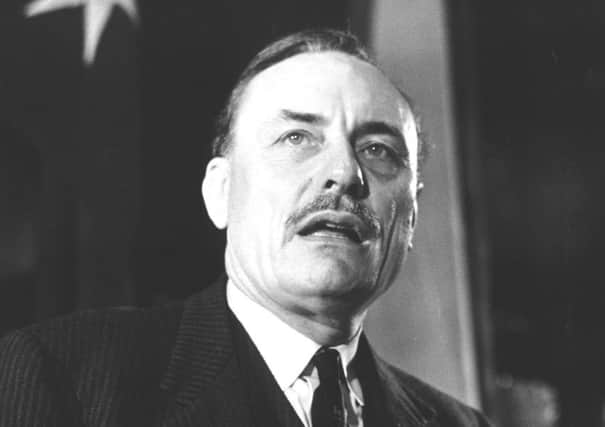Ewan Aitken: Why we must talk to those who agree with Enoch Powell


A hundred and one years ago this week, Ellis Island, New York’s famous Immigration Centre, processed 12,000 new Americans, the most on a single day up to that point. At that time, migration to America was encouraged, certainly by those who had already gone there, though the indigenous population may have had other views. Sadly today immigration is seen as a threat to American identity, despite being that identity being formed out of centuries of people coming from distant countries.
Between 1948 and 1971, Britain bolstered its labour market by encouraging people from Caribbean countries to settle in Britain. Some 70 years later, a significant number and their children are facing the fallout from a much more draconian approach to immigration, threatened them with deportation despite decades of working, paying taxes and being active members of the community. The UK Government has “apologised” and committed to rectifying the situation but it has meant huge trauma for thousands of people who believed they were British citizens.
Advertisement
Hide AdAdvertisement
Hide AdHow on Earth did we end up in this situation? How did we manage to move from welcoming people, whose countries we had overrun and claimed as our own, to creating a system which rejected their identity and refused to recognise their contribution to society?
Some might trace the start of it back to a speech made 50 years ago this week by Enoch Powell, then MP for Wolverhampton South West. Dubbed the “rivers of blood” speech because of a reference to line written by the Roman Poet Virgil – “the River Tiber foaming with much blood” – it expressed his concern about what he saw as consequences of continued mass immigration from the Commonwealth to the UK.
He was wrong in his analysis then and he remains wrong. Tragically, the impact of his words continued long after the speech ended. Its apocalyptic implications has made conversation about diversity, community integration and cultural understanding much more difficult.
Yet despite this, I believe the BBC was right to replay the whole speech this week. It did so critically and without ever suggesting it was an anniversary or speech to celebrate. Yet it was lambasted for even acknowledging the speech despite its profound impact, negative as it was, on the diversity and inclusion debate over the years.
Advertisement
Hide AdAdvertisement
Hide AdPowell has support for his views. At the time of the speech, one poll suggested he was back by more than 50 per cent of the population. That is not comfortable to hear. Thankfully a poll last week suggested attitudes had changed a great deal with 59 per cent believing we are less racially prejudiced than 1968. Interestingly Powell’s old seat is now held by Paul Uppal, whose Kenyan Sikh parents moved here in the 1960s. But if we are ever to get that number closer to the levels of 80 or 90 per cent, where people of the black and ethic minority communities feel truly safe and valued, we have to understand those who take a different view on race. We do not condone by listening; we learn. We learn how to draw people away from their place of prejudice to a new place of celebrating diversity and difference.
Cyrenians was founded in 1968. Our vision is an inclusive society in which we all have the opportunities to live valued and fulfilled lives. We cannot achieve our vision until prejudice, be that racial or any other kind, is a thing of the past. That cannot be achieved until we understand why someone has become prejudiced – for children are not born so – and what it will take for someone to move from that place of hate to a place of hope. If we do not listen, difficult as that might be, we will never understand. If we do not understand, change cannot happen. And if change does not happen, then we let those who think Powell was right create a prejudiced society built on exclusion not inclusion which is certainly nothing to celebrate.